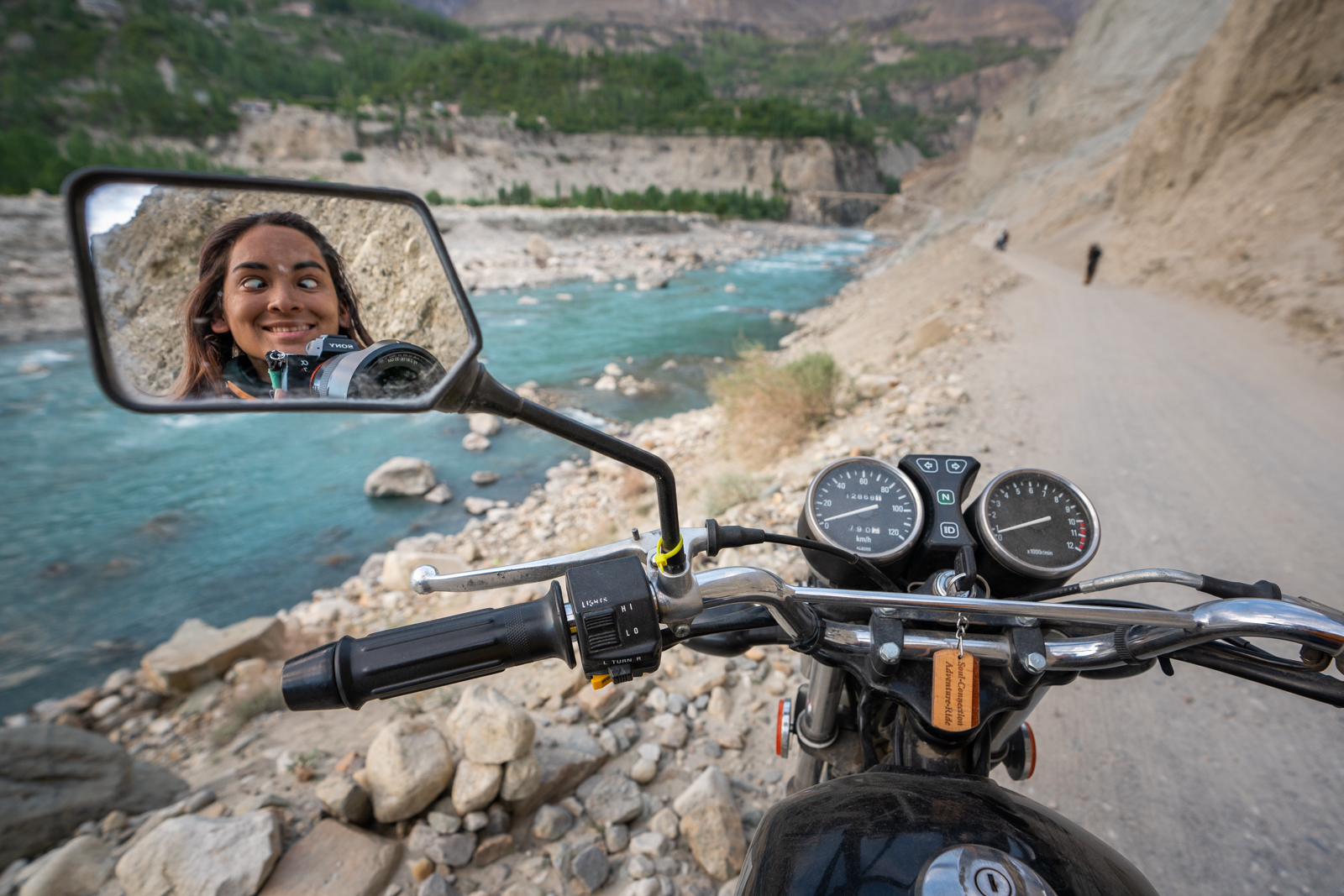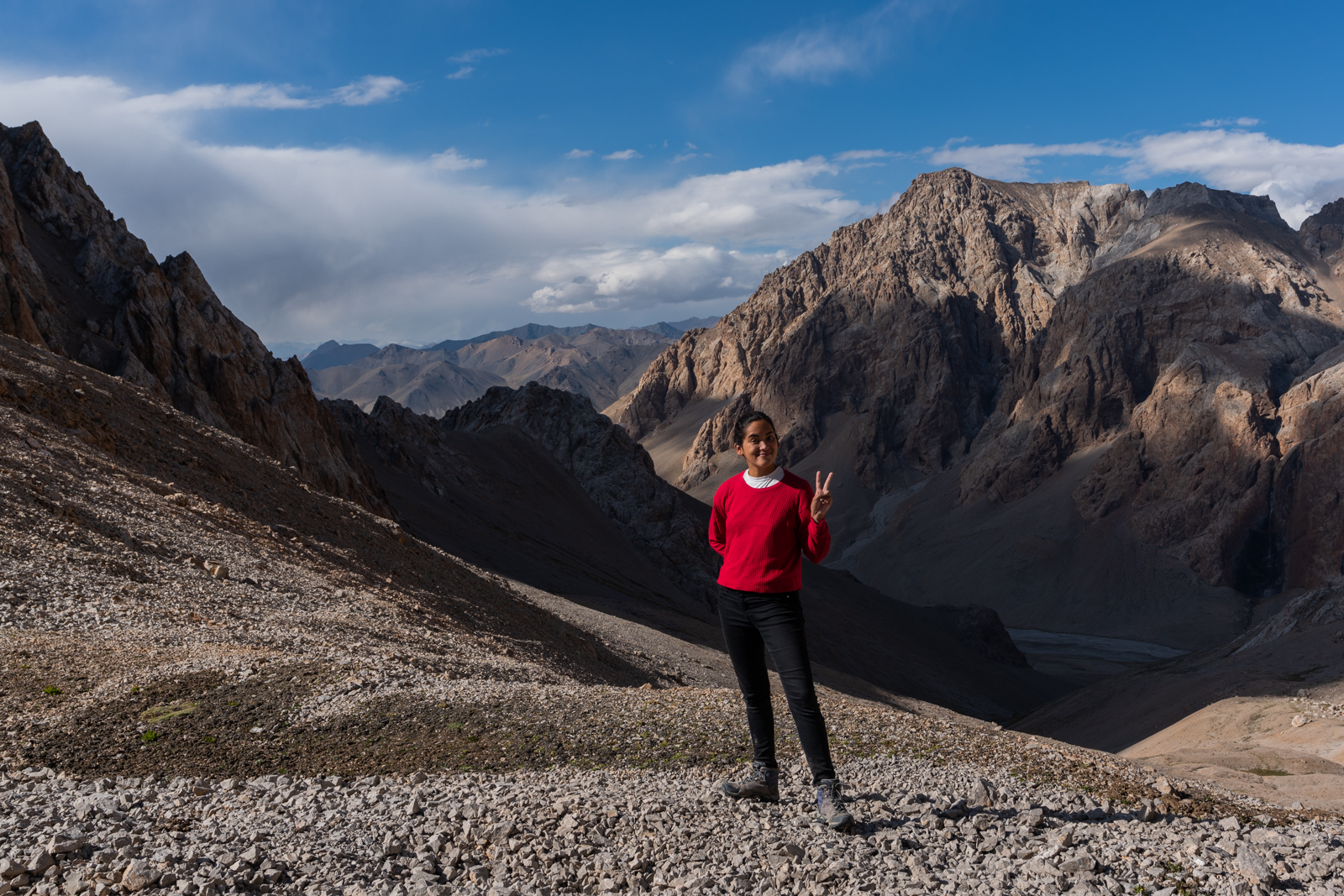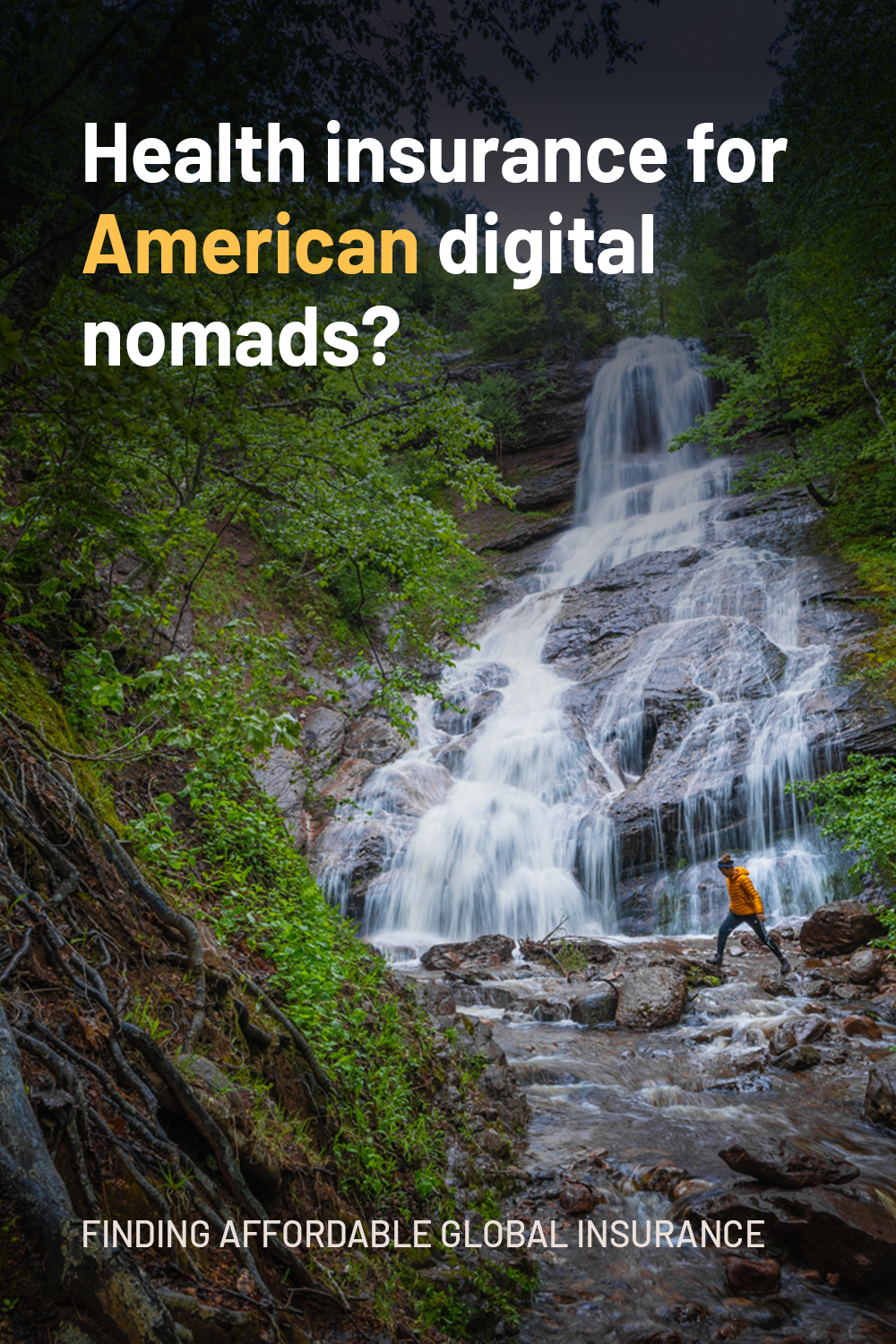My experience trying to find the best health insurance for American digital nomads (and/or expats), and what global health insurance I chose as an American long-term traveler. Not sponsored, I just want to help other travelers who have the same questions I did.
Back in my early days of full-time travel and digital nomadism, travel and health insurance was… a charming idea at best. Sometimes I had travel insurance, sometimes I didn’t. Sometimes it expired and I’d be too lazy to purchase a new policy for a few months, sometimes I just didn’t want to spend the money on it because backpacker.
Aside from a rather unpleasant experience with parasitic ice cream in Afghanistan that landed me in a clinic hooked up to an IV (that wasn’t covered because Afghanistan), insurance was never really necessary. Most of my travel hiccups were too insignificant to claim. Cocky younger me assumed I was borderline invincible.
… but then a terrifying experience in Tajikistan reminded me of my mortality, and I realized yeah, I should probably be insured.
As if that wasn’t enough, months later the pandemic hit, I locked down with my parents in a Belgian village, and eventually needed both general checkups and orthopedic specialists at Western prices.
No time like lockdown time to finally sit down and find global health insurance.
Index: Health insurance for American digital nomads and expats
- Why digital nomads and long-term travelers need health insurance
- Affordable health insurance for an American digital nomad
- Which health insurance did I choose?
- Other global health insurance options I considered
- Things to consider when choosing your global health insurance

Driving a motorcycle alone in the mountains of Pakistan with little experience… what could possibly go wrong? (… sarcasm)
Why digital nomads and long-term travelers need actual health insurance, not just travel insurance
A lot of travelers assume they can get by with just travel insurance on their trips. Most of them can. Travel insurance is made for people to use for a few weeks or months at a time.
Digital nomads and other long-term travelers, however, are in a different boat. Especially Americans.
Health insurance for American digital nomads is necessary because many travel insurance providers, including traveler favorite World Nomads, do not cover travelers unless they’re insured in their home country. Even if that’s not the case, in a serious emergency, travel insurance companies basically aim to cover you long enough to get you back to “home” soil so they can dump you on your home health care system. Don’t have home health insurance? That’s your problem.
Being evacuated to your home country is a potential disaster for us Americans who enjoy one of the the most broken and expensive health care systems in the world. USA!
It’s tempting to hope for the best and pray nothing goes wrong on the road… but experienced travelers know that something ALWAYS goes wrong on the road eventually.
Seeing as getting slapped with thousands—millions?—of dollars in hospital bills is generally something most people try to avoid, let’s talk about how to insure yourself as a digital nomad to prevent that from happening.
Read: The confusing reality of reverse culture shock

Trekking around at 4,000+ meters in Bhutan? What could go wrong? (Luckily nothing for me, though someone else had to be evacuated out after a pack mule busted her knee.)
Affordable health insurance for American digital nomads… an oxymoron?
Once my brush with death (and some running injuries) finally convinced that I needed insurance, I first decided to try to game the system, and get the cheapest insurance possible to combine with the travel insurance I already had.
Prohibitively expensive American healthcare wasn’t news to me, but once I went out in search of affordable American health insurance to cover me in the US (or wherever I might end up), I soon learned the extent to which affordable health insurance is an oxymoron in the United States.
Some plans I saw were upwards of $2,000 per month. Even the most “affordable” basic health insurance option, Medicaid, was more than $250 per month for me as a 28-year-old. A joke I no longer laugh at after years of living in the Netherlands, where at my most broke moments I only paid €100 per YEAR for insurance. And those policies wouldn’t even cover me abroad—I’d still need travel insurance for that.
No matter where I looked, the truth remained the same: if you want American health insurance, the only realistic, affordable way to get it is to get a job that offers health insurance benefits.
Not that I’ve spent my entire professional life as a freelancer… but I’ve spent my entire professional life as a freelancer. Without health insurance benefits. I imagine you’re in a similar boat, since you’re reading this.
Eventually, after a few days of raging against the system and poring over internet discussions, I found a more practical solution. No need to try and combine American insurance with travel insurance—I could just get global health insurance instead. So I did.
Read: Four years of full-time travel, four important lessons

Camping in a remote canyon in Saudi Arabia? What could go wrong? (Crippled donkey attack. I’m not kidding.)
Affordable health insurance for digital nomads: Cigna Global Health Insurance
After shopping around for health insurance options for American digital nomads, I ultimately ended up purchasing a plan with Cigna Global Health Insurance.
Disclaimer: I’m just a person, not a health expert nor an insurance expert. I’m not sponsored. I’m just a digital nomad who, like you, doesn’t want to go broke if I do something stupid. This is my experience – you’re welcome to come to your own conclusions.
Now, on to why Cigna:
Why I chose Cigna for my global health insurance
- Cigna explicitly said being a digital nomad is fine, and that it doesn’t matter where my address is as so long as I’m not a citizen of that country—not a problem as I don’t want to live in the US.
- I can update my address/country whenever I move if so desired with minimal effort if I want to. The sales rep said it didn’t really matter.
- Making claims with Cigna is easy. They have a web portal where you can easily submit claims, and their turnaround time was said to be fast.
- Cigna’s health insurance plans were cheaper than other insurance providers.
- Mental health coverage is included (heyo 21st century!)
- Their network of trusted hospitals and doctors is huge, making it easier to find “approved” medical care
Calculate the cost of your health insurance with Cigna
How much I pay for my Cigna global health insurance and why
I purchased Cigna’s Silver International Medical Insurance plan with…
- Up to $1,000,000 in annual coverage
- $0 deductible
- No US coverage (tryna avoid the US these days)
- $0 out of pocket maximum
In total, my Cigna health insurance plan costs me $1,140 per year ($95/month).
Find out how much your global health insurance will cost with Cigna
Silver coverage could actually be as low as $40 per month for someone my age (almost 30 at the time of writing in 2021), but I was worried about needing a few specialist orthopedic visits and possibly physiotherapy at the time, so I lowered my deductible and added a few extra benefits.
Once the pandemic situation improves and I start traveling in more affordable countries again, I’ll raise my deductible and out of pocket for the next renewal period and just pay any non-emergency expenses out of pocket like I was before.
Read: How do I pay for all this full-time travel?!

Okay, nothing actually went wrong here. But I was nervous while traveling around Canada—what if something happened and I had to go back to the US for treatment?
Cigna Global health insurance review: my experience as a digital nomad
Of course, it’s easy for a company to look good on paper and be an absolute nightmare in reality. As is the norm with many insurance companies.
I didn’t want to write about my experience with Cigna until I actually made several claims… but after a year of using them, I’m ready to talk shop.
My experience with Cigna has been positive so far. I’ve had to manually file several claims for things ranging from check-ups to medications to MRIs (Belgian healthcare doesn’t do direct billing with foreign insurance companies). Literally all I had to do was fill out the form screenshotted below, take a photo of the invoice, then submit. I was actually suspicious of how simple it was.
But my suspicion was unnecessary. Refunds arrived quickly every time—one refund was credited to my bank account within 24 hours.
Fortunately for me, unfortunately for this post, I haven’t had any major disasters in the last year so I can’t attest to how they handle big fees. However, I came across a few Reddit posts where people said Cigna covered everything they said they would without a fuss, like this person who broke their leg in South Korea.
Every person has a different experience, but based on my own, I’m satisfied with Cigna for now, and would recommend it to other digital nomads for the time being. I’ll let y’all know if I die and everything goes wrong.
Get your global health insurance quote from Cigna right now

Ski touring in the mountains of Kyrgyzstan? I was a disaster, luckily the snow was forgivingly soft.
Other global health insurance options and why I didn’t choose them
A handful of other options came up in my search, some more compelling than others. Here’s what other health insurance companies I considered, and why I ultimately decided not to go with them:
- My second choice: Integra Global. I almost went with them. Integra covers all the standard medical needs, and medical evacuation is included in their basic policy (unlike Cigna). Ultimately, they were a bit more expensive, and I found more positive reviews for Cigna from people who actually had to make claims. However, I did see plenty of digital nomads saying they had and were satisfied with Integra Global insurance. Integra would be my runner up choice.
- Allianz World Care: Good coverage, but expensive. Doesn’t cover US residents, though I’m not really planning on moving back any time soon.
- AXA Global Health Care: Large, well-regarded insurance provider, but expensive because of it.
- Clements: I saw Clements insurance mentioned from time to time but couldn’t find many reviews. Plus, it seemed they just go through Cigna anyway, so why bother purchasing from them?
- IMG Global: Prices looked good, but I read a lot of complaints about them being slow to respond. They also require you to be out of your home country (US or otherwise) for at least six months/year, and I don’t want to have to worry about time requirements.
- GeoBlue: They’re expensive. (Also, in case you’re not American but still reading this – they only cover American citizens)
Why Safetywing might not be good idea for digital nomads
Safetywing gets a special mention because they’re commonly referenced as a travel and/or health insurance option for digital nomads… but I’m wary of them.
The reason you see Safetywing mentioned everywhere online is because they have a strong marketing team. They’ve been proactive about blogger outreach. I know—they’ve reached out to me and other friends about sponsored posts in the past.
Of course, marketing doesn’t make a company suspicious. I’m wary of Safetywing insurance for digital nomads
- Because they’re not as well-established as older, more reputable providers—that means their partner network is going to be smaller.
- Because I haven’t actually seen positive reviews from people who had to make claims. All of the posts advertising Safetywing are from people who have never made a claim. I have, on the other hand, seen a lot of reports of bad experiences from people who had to make claims:
However, Safetywing is still one of the cheapest global health insurance policies, and they do specifically cater to digital nomads. If you decide to go with them anyway, use them at your own risk.

Stay safe, and don’t be reckless. Unless you just can’t help yourself.
Things to consider as a digital nomad when choosing your health insurance
Just because I got Cigna doesn’t mean you have to! By all means, shop around and see what the best policy is for you. Some things to consider while you do:
- What is the annual limit? Is it enough for where you’ll be traveling? My annual limit is $1 million with Cigna – enough for an emergency almost anywhere in the world, probably not enough for a disastrous procedure in the US with a long in-patient recovery time.
- How much more is US coverage? If you’re planning on visiting the United States from time to time, you’ll want to be covered, but that coverage can easily raise policy prices by hundreds of dollars a month.
- Is evacuation covered? This can be very useful for us nomads who like to end up in difficult places… and get into trouble as a result.
- Are sports/extreme sports covered? Sports can sometimes include something as benign as hiking – you don’t want to find out you’re not covered after you break your leg while in the mountains.
- What are the age restrictions? Cigna doesn’t have age restrictions, but some insurance providers like IMG have an upper limit on who can be insured.
- Out of pocket maximum? This is the maximum amount you will ever be expected to pay up front for any treatment. You can choose your upper limit with Cigna when signing up.
- How strict are they about prior approval? Some insurance companies require you to inform them before you have elective treatment. Cigna has been quite relaxed about this, in my experience.
Read: Learning to motorbike in Pakistan
This article from Expat Den does a good job of breaking down and explaining other things to consider when looking for health insurance.
Hopefully this was helpful to any American digital nomad trying to find global health insurance. Whatever you end up choosing, do take care, stay safe, and try not to die.
Do you have personal experience with global health insurance for American digital nomads (or otherwise)? What plan do you use?




Hi Alex! This was super helpful but I have a couple questions if you have the time to answer.
First, you stated that World Nomads and other companies weren’t a good option because they require you to have health insurance for your home country because their goal is to repatriate you for treatment. But I also saw you say that Cigna has no US coverage… so how does that work? When you are in the US can you not receive any kind of treatment? What happens if you have an accident while in the US?
Also, I saw that you were able to get some coverage for meds. Do you have any regular medication prescriptions that Cigna covers? I want to travel long term but I’m held back by my chronic illness. I have at least one medication that I need to take every day, and in the US I can only get one month’s supply at a time and it’s illegal to ship any medication overseas from the US. I have no quality of life without this medication, though. With Cigna are you able to get medication refills abroad?
Thank you so much! This post was really enlightening and I’m going to save it for later. I appreciated that for a topic like this, this isn’t a sponsored post or covered in affiliate links.
Hey Sarah! Happy to help where I can. Yeah, this isn’t meant to be an affiliate plug—I was legitimately confused when going to look for insurance suitable for my situation and I hoped it could be of help to others in the same boat.
To answer your questions:
– Cigna lets you set your “home” address to wherever you’d like, even as an American. So, you could say that in the event of an emergency, you want to be “repatriated” to, say Thailand where great medical care isn’t insanely expensive, rather than the US. As for traveling in the US, yes I’d need extra coverage for that… but I could get travel insurance that covers my time in the US since I have Cigna. I might have paid for the US add-on if I expected to spend a large amount of time in the US, but I’d only go back for a short visit these days as my parents now live in Europe.
– I’d guess that something that essential would be covered, but I’m not sure to be honest as I don’t know the ins and outs of procuring meds for chronic illnesses. In addition to coverage, you would also have to consider whether or not you can get that medicine in the places you’re in, which is something you’d have to figure out on your own (though Cigna might be able to point you to some of their partners who can assist). I’d recommend calling them to ask, they were quite helpful every time I spoke with them 🙂
Here’s one positive Safety Wing experience – I had to get my appendix taken out in Thailand a couple years ago, and they covered everything (including an ER visit, CT scan, hospital stay, etc), no problem. I was super happy with them!
Oh no! I’m glad they worked out for you, and that you’re okay in the end 🙂 That would be a scary time to be insurance-less… you have more important things to deal with in an emergency!
As someone who did this before coming to Canada late last year for an indefinite amount of time after months separated from my Canadian partner (still here LOL), I literally went through the EXACT process and…went with Cigna as well! Haven’t need to make a claim, but was very please with customer service when I was signing up, sounds like I pay a bit more than you as I opted for US-coverage as my fam is still there and I’ll likely go back at some point this year. Anyways great post wish I’d had it last year, could’ve saved me some time haha. Hope all is well in Belgium!
Hahahaha can relate to that struggle! But good to see great minds buy insurance alike 😉 Yeah, makes sense with the US coverage, I would’ve added the same if I planned to go back for any reasonable amount of time.
Very interesting article, I like to read travel notes and gain new experience and knowledge for myself . In the 21st century, a lot of information can be found but very little where it is clearly presented-thank you for the article .
Just want to say thanks for a truly helpful article that helped me see some of the important considerations quickly, and with clarity. I’m a marketer and copywriter and appreciate this level of attentiveness in work. And, I have seen enough to know how rare it is. As a new digital nomad, there are an overwhelming amount of things to learn and decide. Your nod in a good direction here is especially helpful with this critical piece of the puzzle. Cheers.
Glad this was useful for you, Michael. One of the main intents of my blog is to provide the information that I myself wanted but couldn’t find—without compromising on detail—so it’s nice to know this was a small success 🙂 Cheers!
Hi Alex, nice post!
About the 2 points below…monthly premiums can change dramatically when changing ‘base’ countries, I asked for a quote based in Europe (Croatia) and another in the Caribbean (Antigua). For the exact same worldwide coverage, the Croatia quote was $145/month and Antigua was $351. SAME coverage.
Have you researched which countries are cheapest, since they don’t seem to care which one you choose?
1. Cigna explicitly said being a digital nomad is fine, and that it doesn’t matter where my address is as so long as I’m not a citizen of that country—not a problem as I don’t want to live in the US.
2. I can update my address/country whenever I move if so desired with minimal effort if I want to. The sales rep said it didn’t really matter.
Safetywing is now also buying massive email lists (illegal) and spamming the hell out of thousands of web developers which is another good reason to not trust them… they run it like a Silicon Valley startup instead of an insurance company
And when I reviewed their coverage it was very bait-and-switch type of fine print and seems like a joke
If you have to read the fine print than it’s not an insurance worth buying
So helpful! Thanks for all this detail. Spending time in the US continues to be our problem that raises costs. The US system is so broken and expensive.
If this is not a sponsored post or an “affiliate plug” then why do your links to Cigna contain affiliate UTM tracking then?
It seems very disingenuous.
fast hook up is the real guy to reach out
whats app/telegram /signal ; + 18186500309 or Wickr : fasthookup
Ketamine, mdma, cocaine, xtc, xanax ,weed and many more,
THANK ME LATER